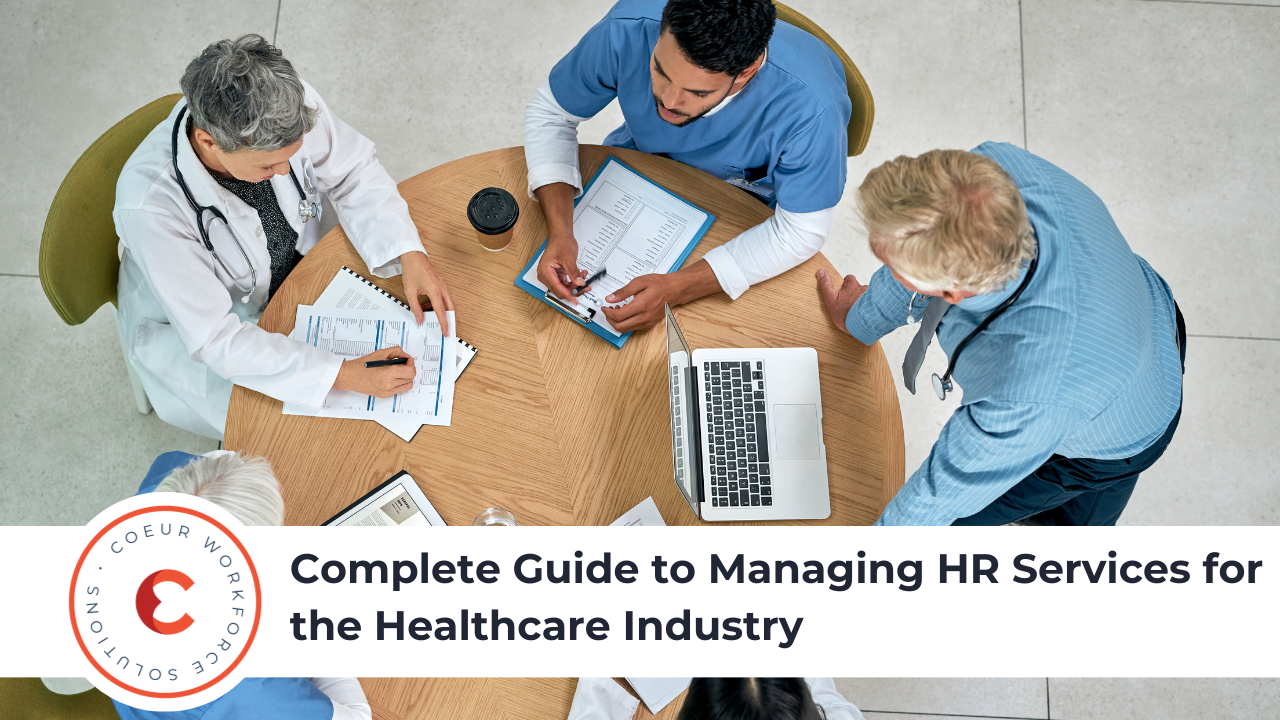The healthcare industry is among the most critical sectors worldwide, as it has a direct impact on human lives. With frequent advancements in medical science and the rapid evolution of the healthcare ecosystem, it has become imperative for organizations and professionals to stay updated, efficient, and competitive in the market. Human Resources (HR) plays a central role in supporting these objectives, as it caters to the employees who form the backbone of any organization. In light of this, managing HR services effectively for the healthcare industry has become a prime focus.
In this article, we’ll discuss key aspects, challenges, and best practices for HR management within this industry to optimize workforce productivity and ensure better patient care outcomes.
Workforce Planning and Recruitment
Effective workforce planning is essential for optimizing HR services in the healthcare industry. By assessing current staff levels and industry demands, HR professionals can forecast staffing requirements and strategize recruitment accordingly. Healthcare organizations should implement proactive recruitment and sourcing techniques based on their workforce needs, including using applicant tracking systems, collaborating with educational institutions, and leveraging social media platforms to attract talent. A successful talent acquisition plan focuses on the potential employees’ qualifications, certifications, experience levels, and cultural fit within the organization.
Employee background checks and thorough credentialing are crucial steps to ensure that new hires possess valid and up-to-date licenses and certifications. Additionally, HR professionals should pay attention to diversity and inclusion initiatives in their recruitment processes, which can help create a more balanced and inclusive work environment.
Employee Retention and Motivation
Retaining and motivating healthcare employees plays an essential role in addressing the industry’s workforce shortages and high turnover rates. Establishing a strong workplace culture that promotes transparency, communication, and employee recognition fosters an environment where employees can thrive both professionally and personally. HR professionals can implement a variety of strategies to improve employee retention, such as offering competitive compensation, career growth opportunities, workplace wellness programs, and employee assistance initiatives for personal or professional challenges.
Mentoring programs are also valuable tools for employee retention, as they facilitate knowledge sharing, skills development, and the building of professional relationships. These programs help create a sense of belonging and commitment among staff, which ultimately contributes to reduced turnover rates and improved employee satisfaction.
Compliance and Employee Relations
Given that the healthcare industry operates within a highly regulated environment, HR professionals must ensure adherence to various federal, state, and industry-specific regulations. Developing and implementing appropriate policies and procedures, staying updated with regulatory changes, and promptly communicating these updates to employees are essential aspects of maintaining compliance. Ensuring a safe and healthy workplace environment by adhering to the Occupational Safety and Health Administration (OSHA) standards and providing necessary training on safety regulations is also crucial to minimize employee-related risks within the organization.
In the healthcare industry, patient care often intersects with employee rights and privacy. HR professionals should manage employee relations by effectively addressing any issues or conflicts that arise while maintaining the highest ethical standards. Clear communication of expectations, organizational values, and adherence to a robust grievance process can further strengthen employee relations.
Learning and Development
Continuous learning and development are vital to keep healthcare staff updated with evolving industry trends, technology advancements, and changes in the regulatory landscape. HR professionals should perform regular assessments of employee skill sets and identify performance gaps, which help them to create tailored training and development programs. By offering e-learning platforms, certification programs, and workshops, HR services can enable the employees to stay competitive and improve their practice.
It is also crucial to provide effective onboarding and orientation programs for new hires to ensure that they understand their roles and responsibilities, as well as the organization’s values and culture. This approach aids in building strong employee commitment from the initial stages of their employment and ultimately improves overall staff retention and performance.
Conclusion
The success of healthcare organizations greatly depends on efficient HR service management. By focusing on workforce planning, employee retention and motivation, compliance and employee relations, and continuous learning and development, HR professionals can effectively address industry challenges such as workforce shortages, high turnover rates, and regulatory compliance. Through these practices, healthcare organizations can improve their workforce productivity, offer better patient care, and achieve long-term growth.
Coeur Workforce Solutions is an HR and payroll service outsourcing company that small businesses can trust. Get in touch with us today to learn more!





